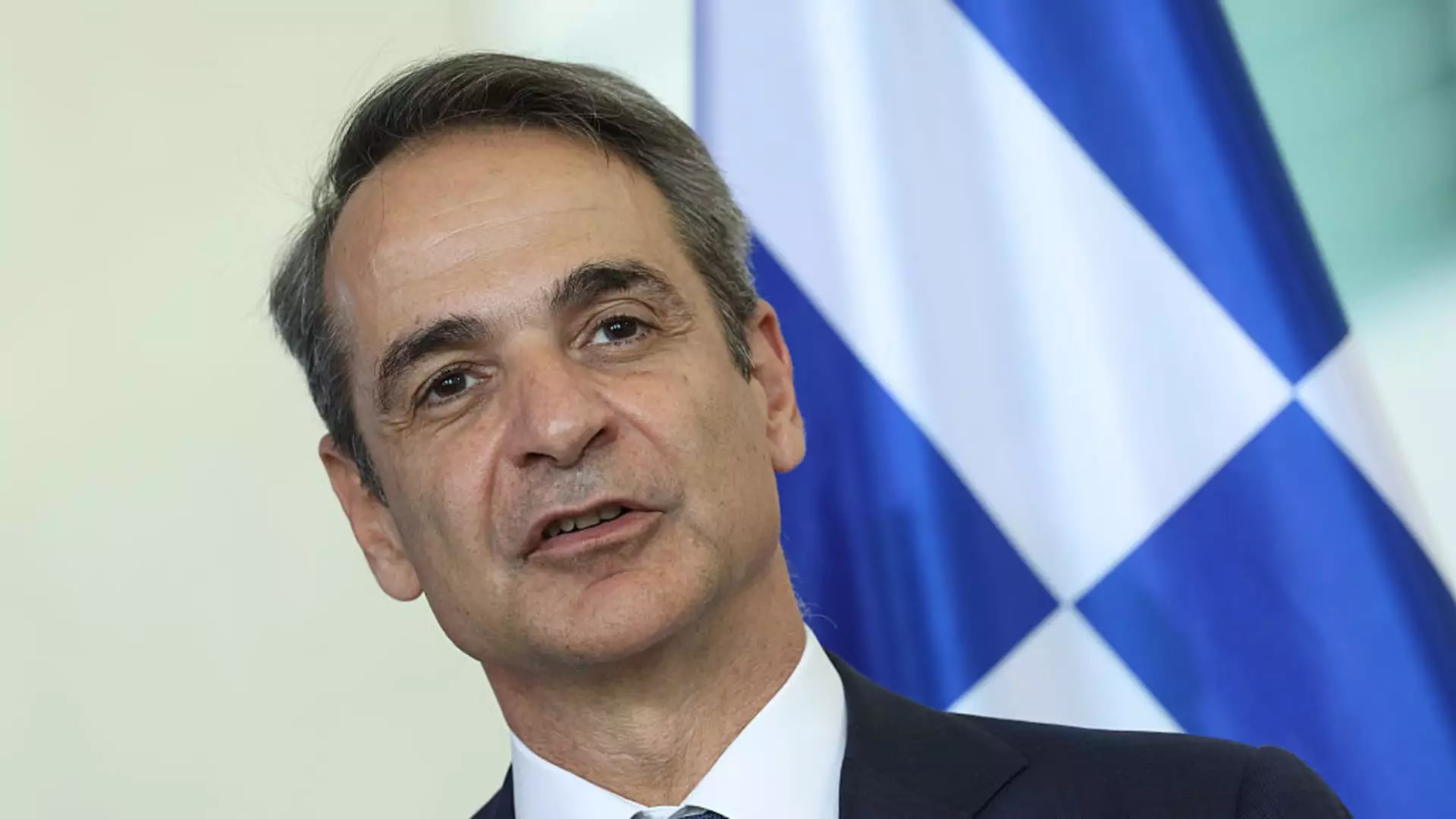In the midst of a shifting global geopolitical landscape, the call from U.S. President Donald Trump for NATO members to elevate their defense spending to an astonishing 5% of GDP is met with skepticism by leaders across Europe. Greek Prime Minister Kyriakos Mitsotakis recently articulated this skepticism, pointing out the implausible nature of such an increase during an interview with CNBC. Alarmingly, his candid observation that “5% frankly, is very, very difficult” shines a light on the unrealistic expectations of the Trump administration, which assumes all NATO nations can absorb such burdens without substantial repercussions on their domestic agendas.
This expectation raises significant concerns about how countries allocate their resources. The current demand stands in stark contrast to the historical spending habits of many NATO allies, which have struggled to reach even the existing 2% benchmark. To expect larger commitments seems not only impractical but potentially reckless in an era where economic recovery from the pandemic should take precedence over military escalation.
An Unwavering Commitment to Defense?
While Mitsotakis acknowledges that a 5% target could hypothetically be achieved if encompassing broader security initiatives, the notion itself is indicative of a broader issue within NATO: defense spending is often framed as a contest of national power rather than a strategy for genuine security. While some nations, like Poland, openly commit to such ambitious targets, the unanimous approval of extensive military spending should raise red flags. The shifting rhetoric around defense expenses often overlooks the larger context—choices must be made between military budgets and essential social investments such as healthcare and education.
Mitsotakis is not alone in his pragmatism; other leaders within NATO express caution toward exacerbating military expenditures amidst pressing socio-economic challenges. In Germany, Foreign Minister Johann Wadephul’s favorable remarks towards Trump’s 5% proposal hint at a willingness to adhere to U.S. pressure, but one must wonder: is this allegiance in the interest of citizens, or merely a political obligation?
Understanding Greece’s Response
Greece, having historically invested over 3% of its GDP into defense, represents a unique case. The prime minister’s commitment to higher defense spending stems in part from ongoing tensions with Turkey—a relationship that requires careful navigation. However, to align more closely with Trump’s demands begs the question: at what cost are these defense expenditures being placed? The economic burdens carried by nations, especially those facing historical economic difficulties like Greece, should prompt an investigation into the sustainability of such demands.
Moreover, the existing European Union fiscal rules impose restrictions on member states regarding their budget deficits and debt levels. Progress toward ease—allowing nations to redirect funds towards enhancing defense capabilities—may be seen as a necessary evil but is troubling in the broader scheme of public welfare. Should military spending be prioritized over essential services in the name of security? Does the threat of external opposition justify economic sacrifice?
The Implications of Militarization
Continuing down this path of militarization raises troubling implications for the future of European integration. The transition from a cooperative security model to one emphasizing military readiness transmutes the essence of NATO from a peacekeeping alliance into a militaristic bloc. Such changes may not only intensify existing tensions but also shift the focus away from collaboration towards one of rivalry and arms accumulation.
Furthermore, the push from leadership to commit to these lofty targets risks reinforcing the militarization narrative while diminishing discussions surrounding diplomatic resolution and negotiation. While undeniably acknowledging threats can be vital for a nation’s safety, the heavy hand of militaristic expectations calls for a reevaluation of the role NATO should serve. Should not alliance members prioritize strengthening diplomatic ties rather than succumbing to pressures for upward spiraling military budgets?
In a world grappling with crisis—be it economic uncertainty, environmental degradation, or social injustice—redirecting attention and resources towards military dominance is dangerous and counterproductive. Instead of contributing to greater security, inflated defense budgets can amplify social divides, fueling unrest and resentment that jeopardizes peace.
Indeed, as Greece and its NATO partners contemplate their defense spending commitments, the conversations should not only ask if they can meet Trump’s demands but whether such demands are even in the interest of their respective populations. The future of Europe may depend on a shift from hawkish strategies to those that emphasize collaboration, diplomacy, and the welfare of citizens.


Leave a Reply